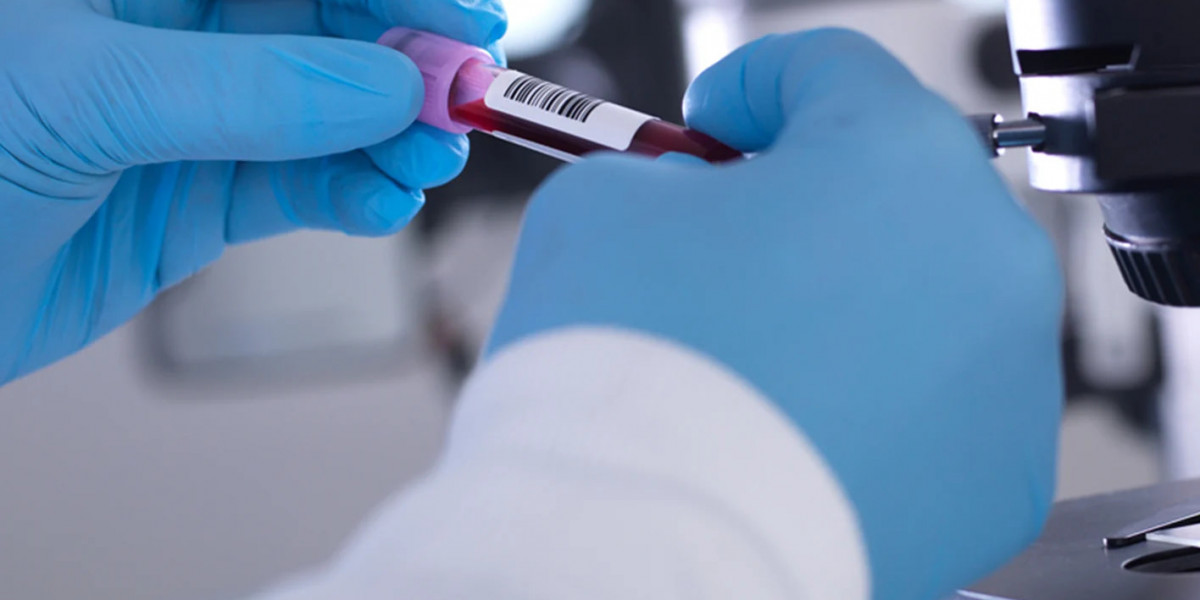The parathyroid hormone (PTH) blood test is a medical diagnostic tool used to measure the levels of parathyroid hormone in your blood. This test is essential in assessing parathyroid gland function and detecting imbalances that might lead to issues with calcium levels in the body. But what does this test involve, and why is it important? Let’s dive deeper into the details of the PTH blood test and its role in overall health.
What is the Parathyroid Hormone (PTH)?
Function of the Parathyroid Glands
The parathyroid glands are small, rice-sized glands located near the thyroid gland in the neck. These glands play a crucial role in regulating the body's calcium levels, which is essential for bone health, muscle function, and nerve signaling.
Role of Parathyroid Hormone in the Body
Parathyroid hormone helps control calcium, phosphorus, and vitamin D levels in the bloodstream. When calcium levels drop, the parathyroid glands release PTH to maintain balance, keeping bones and other systems in harmony.
Purpose of the Parathyroid Hormone Blood Test
Why is a PTH Test Ordered?
A PTH test is typically ordered when a doctor suspects an issue with calcium or phosphorus levels in the blood. It’s especially relevant if calcium levels are abnormally high or low, as this can signal potential parathyroid gland issues.
Conditions Indicating a Need for the PTH Test
The test is commonly used to diagnose parathyroid-related disorders, monitor conditions like chronic kidney disease, and assess calcium metabolism in the body.
Types of Parathyroid Hormone Blood Tests
Intact PTH Test
The intact PTH test measures the whole PTH molecule in the bloodstream and is the most commonly used form of PTH testing.
PTH-C or Whole PTH Test
This test provides a measure of the PTH levels, giving a full view of the hormone's levels within the blood.
Biointact PTH Test
Biointact PTH testing is another variation focusing on active forms of PTH, though it’s less common than the intact PTH test.
When is the Parathyroid Hormone Blood Test Needed?
Symptoms Indicating Possible PTH Imbalance
Signs like fatigue, muscle weakness, and bone pain may indicate PTH imbalance. High calcium levels may also cause symptoms like excessive thirst and frequent urination.
Diagnosis of Parathyroid Disorders
Doctors may request a PTH blood test if they suspect conditions such as hyperparathyroidism or hypoparathyroidism, both of which can significantly impact health.
How the Parathyroid Hormone Blood Test Works
Preparation for the Test
Typically, no fasting or special preparation is needed for the PTH test, but it's always good to check with your healthcare provider for specific instructions.
Procedure of the Blood Test
The test is a straightforward blood draw from a vein in the arm at any best lab or Islamabad Diagnostic Center. Results are usually available within a few days, depending on the healthcare facility.
Understanding PTH Test Results
Normal Ranges of PTH Levels
Normal PTH levels can vary slightly based on the lab and measurement methods. Generally, a normal range falls between 10 and 65 pg/mL.
Interpreting High PTH Levels
High levels of PTH can indicate hyperparathyroidism, kidney disease, or issues with calcium absorption. High PTH often causes elevated calcium levels, which can have serious health implications if untreated.
Interpreting Low PTH Levels
Low PTH levels may suggest hypoparathyroidism, vitamin D deficiency, or an issue with magnesium. Low PTH can lead to symptoms like muscle cramps, spasms, and tingling sensations.
Common Conditions Related to Abnormal PTH Levels
Hyperparathyroidism
This condition occurs when the parathyroid glands produce too much PTH, causing high calcium levels. It can lead to osteoporosis, kidney stones, and other complications.
Hypoparathyroidism
Hypoparathyroidism is the opposite, where the body produces too little PTH, resulting in low calcium levels. Symptoms may include numbness, tingling, and muscle cramps.
Chronic Kidney Disease
Kidney disease often impacts PTH levels due to its effect on calcium and phosphorus metabolism.
Factors that Affect PTH Levels
Medications
Certain medications, such as steroids and lithium, can impact PTH levels, so your doctor may consider this when interpreting test results.
Vitamin D and Calcium Levels
Vitamin D is essential for calcium absorption, and low levels of it can affect PTH levels and calcium metabolism.
Dietary and Lifestyle Factors
A diet low in calcium or vitamin D or a lack of sun exposure can also impact PTH levels.
How to Manage Abnormal PTH Levels
Treatment for High PTH
For high PTH levels, treatment may involve lifestyle changes, medications, or surgery in more severe cases.
Treatment for Low PTH
Low PTH treatment often includes calcium and vitamin D supplements to help balance calcium levels in the body.
Risks and Side Effects of the PTH Blood Test
The PTH blood test is generally safe with minimal risks. Minor side effects may include slight pain or bruising at the needle insertion site.
Conclusion
The parathyroid hormone blood test is an invaluable tool in diagnosing and managing conditions related to calcium and parathyroid hormone imbalances. By understanding the purpose and implications of this test, patients and healthcare providers can make more informed decisions for optimal health outcomes.
FAQs on the Parathyroid Hormone Blood Test
Can a PTH test diagnose all parathyroid disorders?
No, while a PTH test is helpful, it may need to be combined with other tests to diagnose specific parathyroid issues accurately.
Do I need to fast before a PTH blood test?
Fasting isn’t typically required, but consult your healthcare provider for any specific instructions.
How long does it take to get PTH test results?
Results are generally available within a few days, depending on the lab.
Can lifestyle affect my PTH levels?
Yes, factors like diet, sun exposure, and vitamin intake can influence PTH levels.
Is the PTH test painful?
The test is a simple blood draw with minimal discomfort, though some may experience slight pain or bruising.





